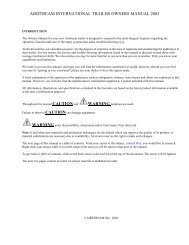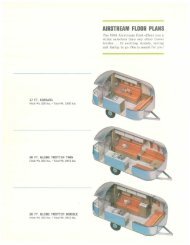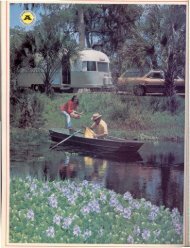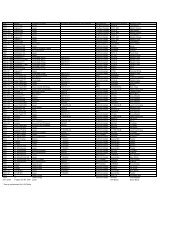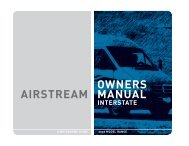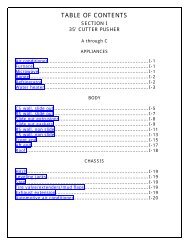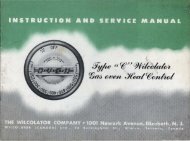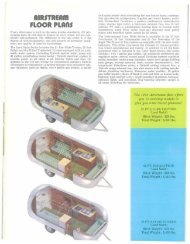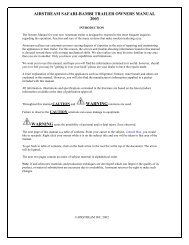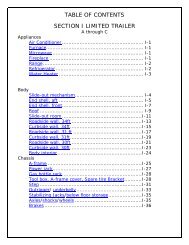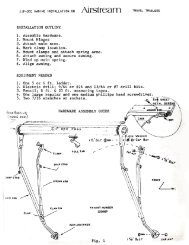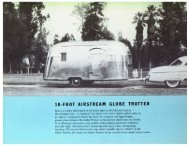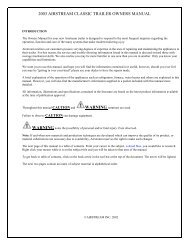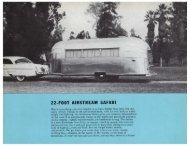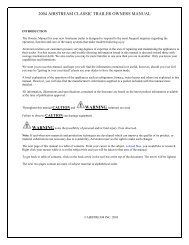Classic - Airstream
Classic - Airstream
Classic - Airstream
Create successful ePaper yourself
Turn your PDF publications into a flip-book with our unique Google optimized e-Paper software.
D<br />
Exterior<br />
full inspection or without using a safety cage. Use a calibrated gauge. If your<br />
tire is rated for higher inflation pressures, a special gauge will be required<br />
designed for larger tires.<br />
• Don’t bleed air from warm tires to reduce pressure buildup<br />
• Don’t inflate tires to cold PSI rating beyond rim specifications<br />
HOW OVERLOADING AFFECTS YOUR TIRES<br />
Tire pressure is what enables your RV tire to support loads. Overloading your<br />
tires can have serious consequences for passengers and your RV. Too much<br />
weight can cause stress on your RV’s suspension system, brake failure, shock<br />
absorber damage, handling and steering problems, irregular tire wear and<br />
possible tire failure. Excessive loads or under inflation can lead to an excessive<br />
amount of heat and tire failure. If you discover that your tires cannot handle the<br />
load, lighten the weight of the load on your tires.<br />
Tire pressure should never be reduced below the vehicle manufacturer’s<br />
recommended levels to support load conditions in order to improve the ride<br />
quality of a vehicle. The difference in ride quality is not significant. When inflation<br />
pressure requirements are not met, tire durability and optimum operation can<br />
be affected.Recommended Tire Inflation Pressure<br />
The recommended inflation pressure is not to be confused with the maximum<br />
inflation pressure that is shown on the side of the tire. At the recommended<br />
inflation pressure, tires will last longer and be less likely to fail, and the tow<br />
vehicle will use less fuel. Serious injury can result from tire failure because of<br />
under inflation or overloading.<br />
Cold Tire inflation Pressure is the tire pressure checked in the morning before<br />
you drive more than a few miles or before rising ambient temperatures or the<br />
sun’s radiant heat affects it. Check your tires’ air pressures at least once a<br />
month, before each trip and each morning you drive during a trip. Tire pressure<br />
should be checked cold, as tire pressure ratings have been designed with<br />
typical running heat/pressure build-up in mind. Make sure the valves and caps<br />
are free of dirt and moisture.<br />
Recommended Cold Tire Inflation Pressure<br />
ST 225/75R-15 65 PSI<br />
Warning: The maximum speed rating on the tires installed<br />
on your trailer is 65 MPH. DO NOT EXCEED THIS RATING. Failure to heed<br />
this warning could cause catastrophic tire failure resulting in property<br />
damage, personal injury and/or death.<br />
D - 10



